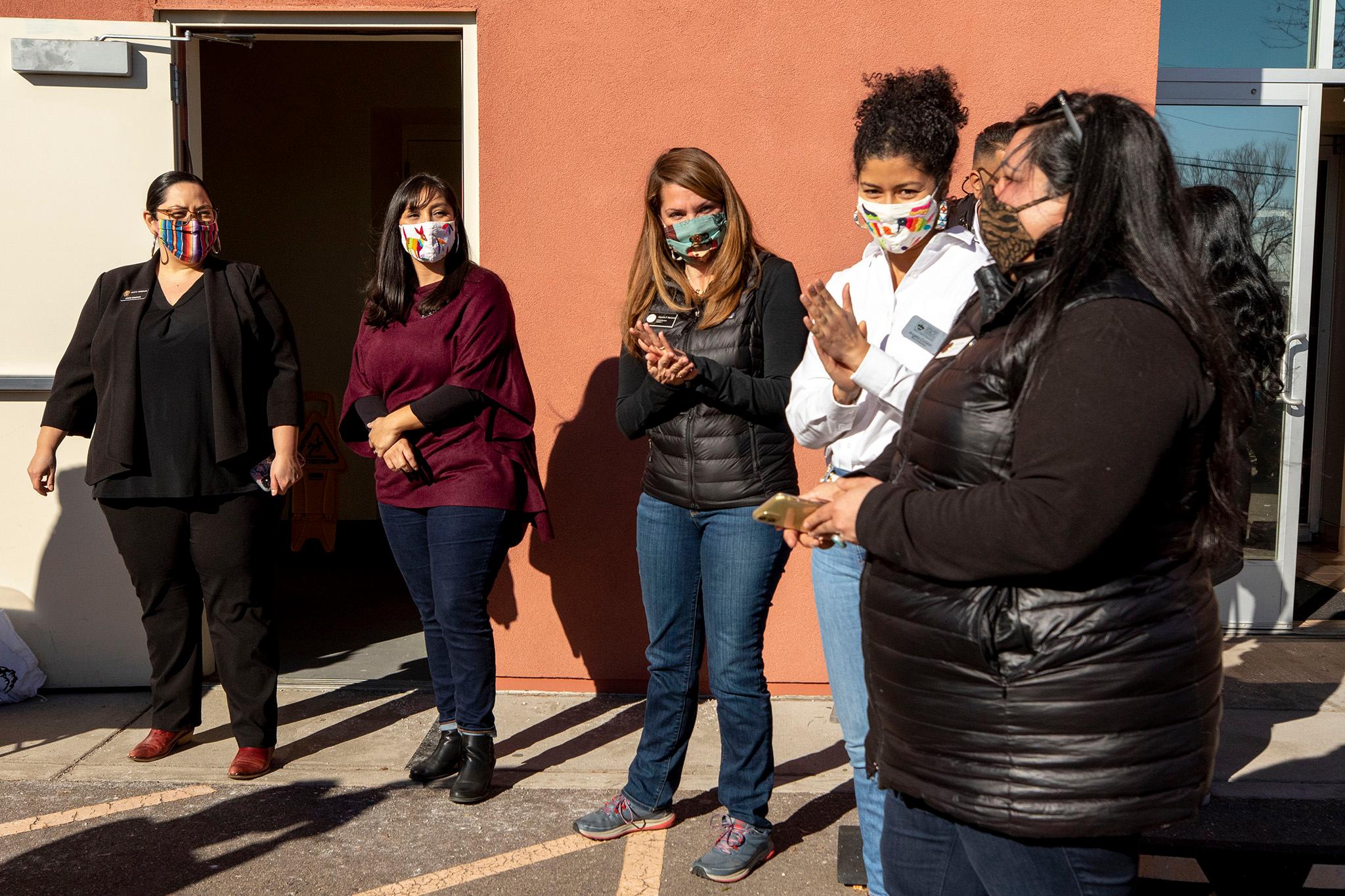It's been a month since COVID-19 vaccines arrived in Denver, and early data showed the rollout was fraught with inequities. Like infection rates and economic impacts, access to shots was skewing in a bad direction for residents of color. Elected Latinas serving the city weren't going to let that trend continue.
"We know that our communities become some of the last served when it becomes a first come, first served situation," City Council member Jamie Torres said standing outside of Sevicios De La Raza on Saturday. "We've got to step into that space and make sure access is built in."
Reggaeton drifted over Torres as she spoke in the warm afternoon sun. Before her was the fruit of labor that had taken place over the last few weeks: Cars lined up in font of the community nonprofit, which has long served Denver's Latino communities. Their occupants leaned out of windows with their sleeves rolled up. Medical workers wearing scrubs and masks checked them in, stuck needles in their arms and then sent them to park in a nearby cul de sac and wait for 15 minutes to ensure no serious side effects arose.
"What I'm feeling today is a sense of relief," Torres said. "It's really phenomenal."
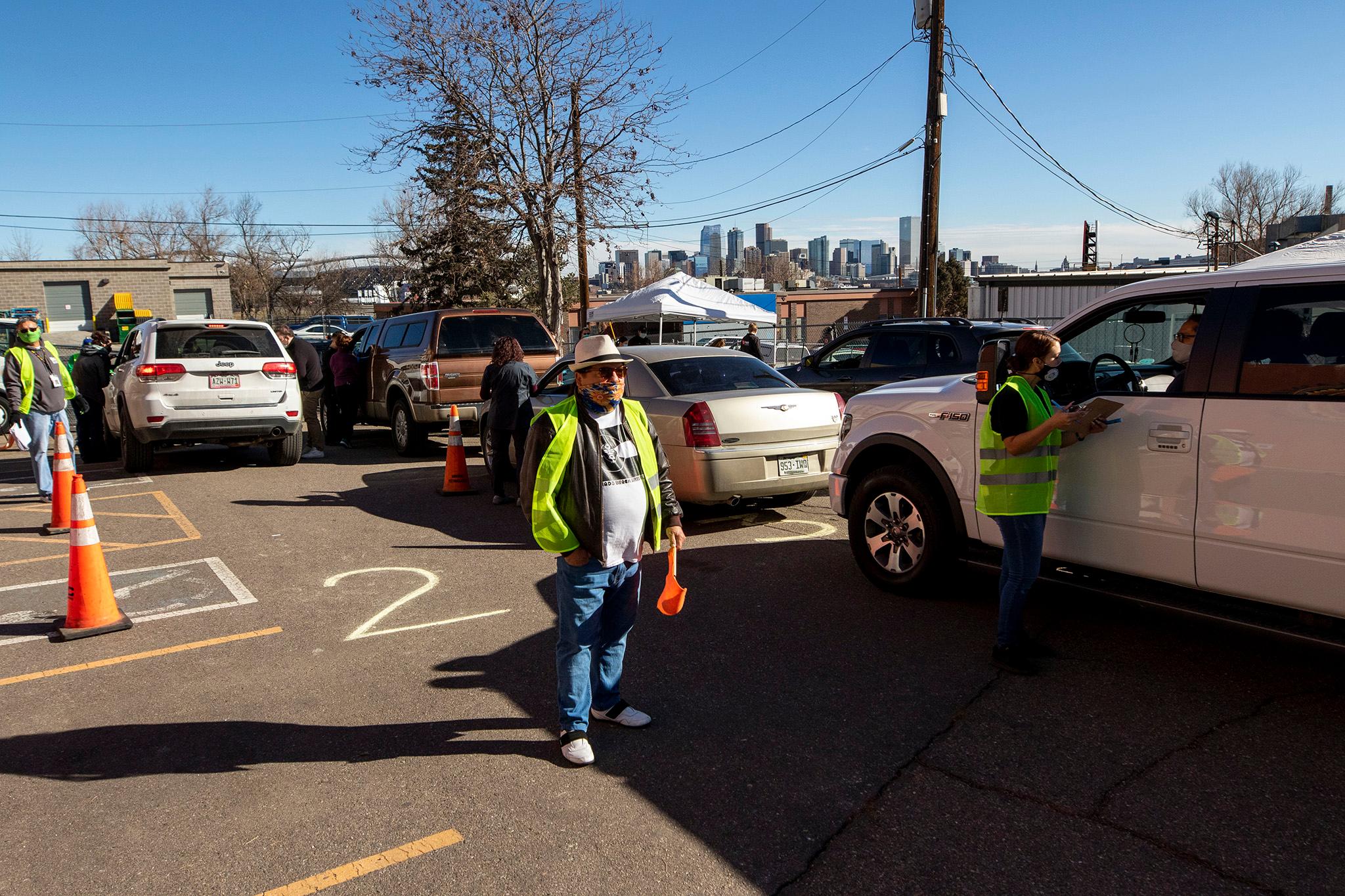
The drive-through clinic was organized by Torres, city council member Amanda Sandoval, State Sen. Julie Gonzales, State Rep. Serena Gonzales-Gutierrez and Denver Public Schools board member Angela Cobián with help from Servicios De La Raza and Denver's Mexican consulate.
As thousands of people lined up for vaccines by Coors Field, this smaller, more targeted effort on the city's west side made sure nobody was left out of the process.
To ensure low-income residents and people of color got the message, each official leaned into their networks to call hundreds of people and schedule appointments for them.
In three days, about 600 people got vaccines at the clinic. The vast majority were signed up for shots before the drive-up site ever made the news.
"It really is the relationships and the one-on-one calls," Torres said. "That's what we need to do to break through some of these access barriers."
Rudy Gonzales, Servicios' executive director, said Latino families need this kind of approach. Just opening the doors and hoping people show up wouldn't have been effective. He suspects many of his community's difficulties through the pandemic stemmed from a hands-off approach.
"We don't engage unless we get a warm touch. A face-to-face. A voice on the other end," he said. "Don't robocall us."
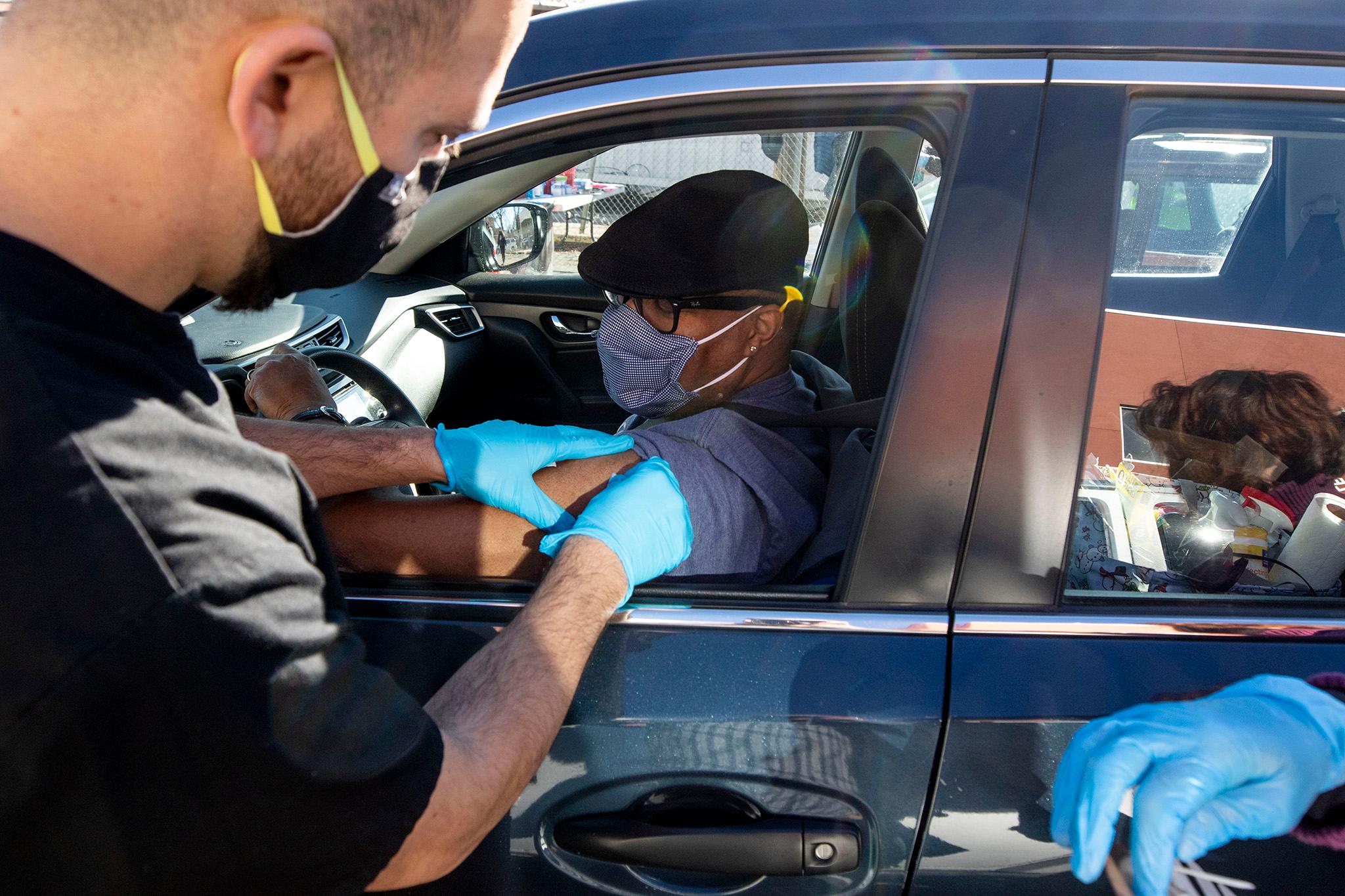
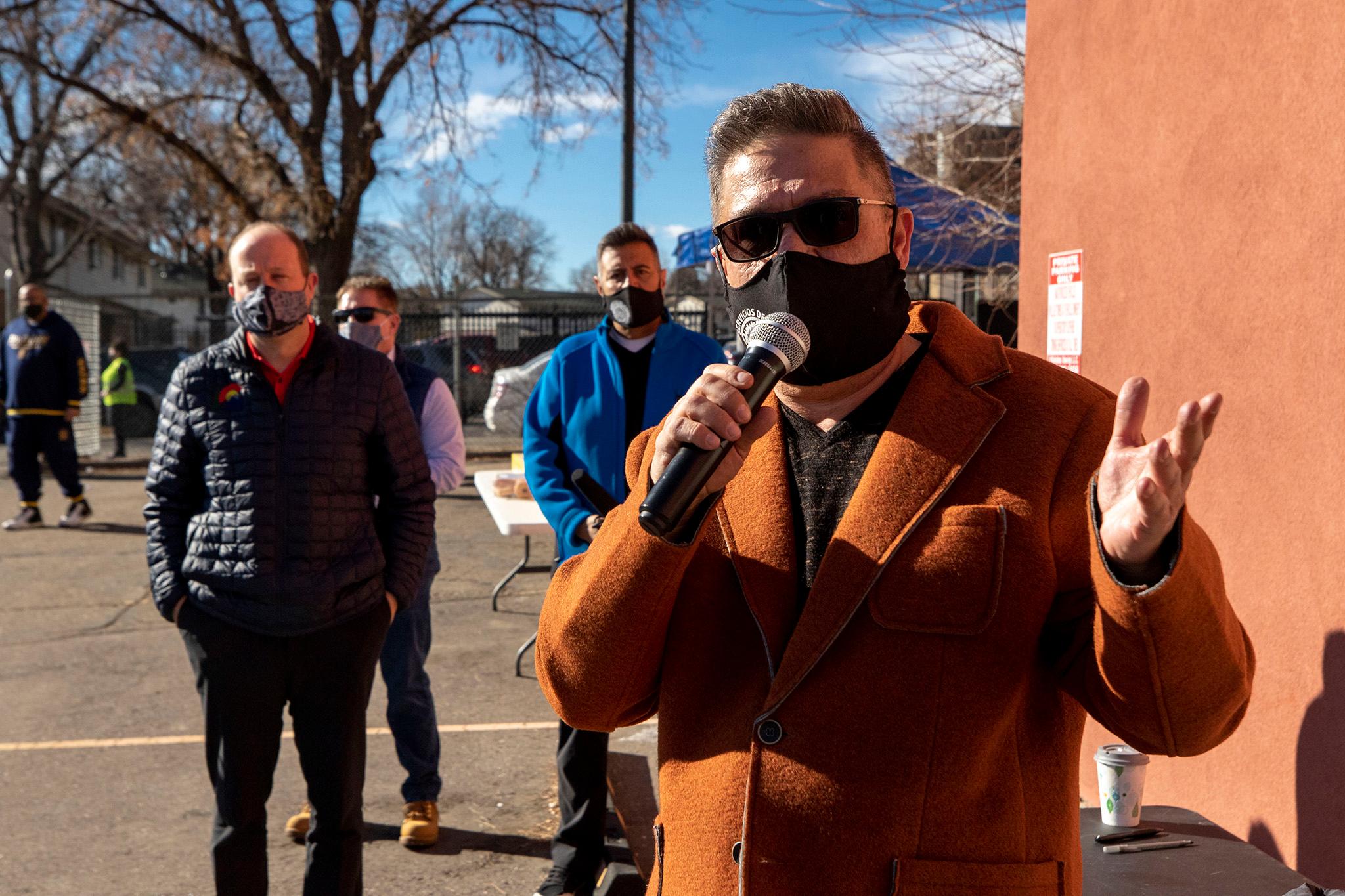
He's grateful for the city representatives who come from these families, who get it.
"Cultural representation means cultural responsivity," he said. "It's extremely important."
Sen. Gonzales said the intervention also was necessary to preempt issues of trust.
"Systems haven't worked for our communities for far too long," she said. "We've got to do the work to go out and say, '¡Oye! Esto es para usted. This is for you.' That's the extra step that we as legislators, as elected officials connected to our community, inherently understood."
She and Rep. Gonzales-Gutierrez both said they heard from constituents over the last few weeks who said they were "livid" with the state's online vaccine sign-up portal.
Gov. Jared Polis made it sound like signing up for shots would be a cakewalk, Gonzales said, but the reality fell short of expectations for a lot of people.
"It felt like folks were playing the lottery," she told us. "When folks were getting appointments, it felt like they won the golden ticket. It shouldn't be like that."
Both state legislators brought their concerns to the governor. Their proximity to Colorado's levers of power gave them the opportunity to make sure frustrations were heard and solutions were taken seriously. They secured vaccine doses from the state's arsenal, worked with the city to hash out traffic patterns and got the ball rolling. Gonzales said each of their overlapping audiences -- constituents who pay attention to state, city or school issues -- helped them reach a wide swath of the population.
Polis made an appearance at Servicios on Saturday and thanked the officials for their work.
Gonzales-Gutierrez thanked him for his support, now and into the future.
"We know equity has been an issue from the beginning, and we know it will continue to be an issue as we go through all of these phases," she told a small crowd gathered amid the cars lined up in the parking lot. "We are asking for the governor's commitment so we can continue these efforts."
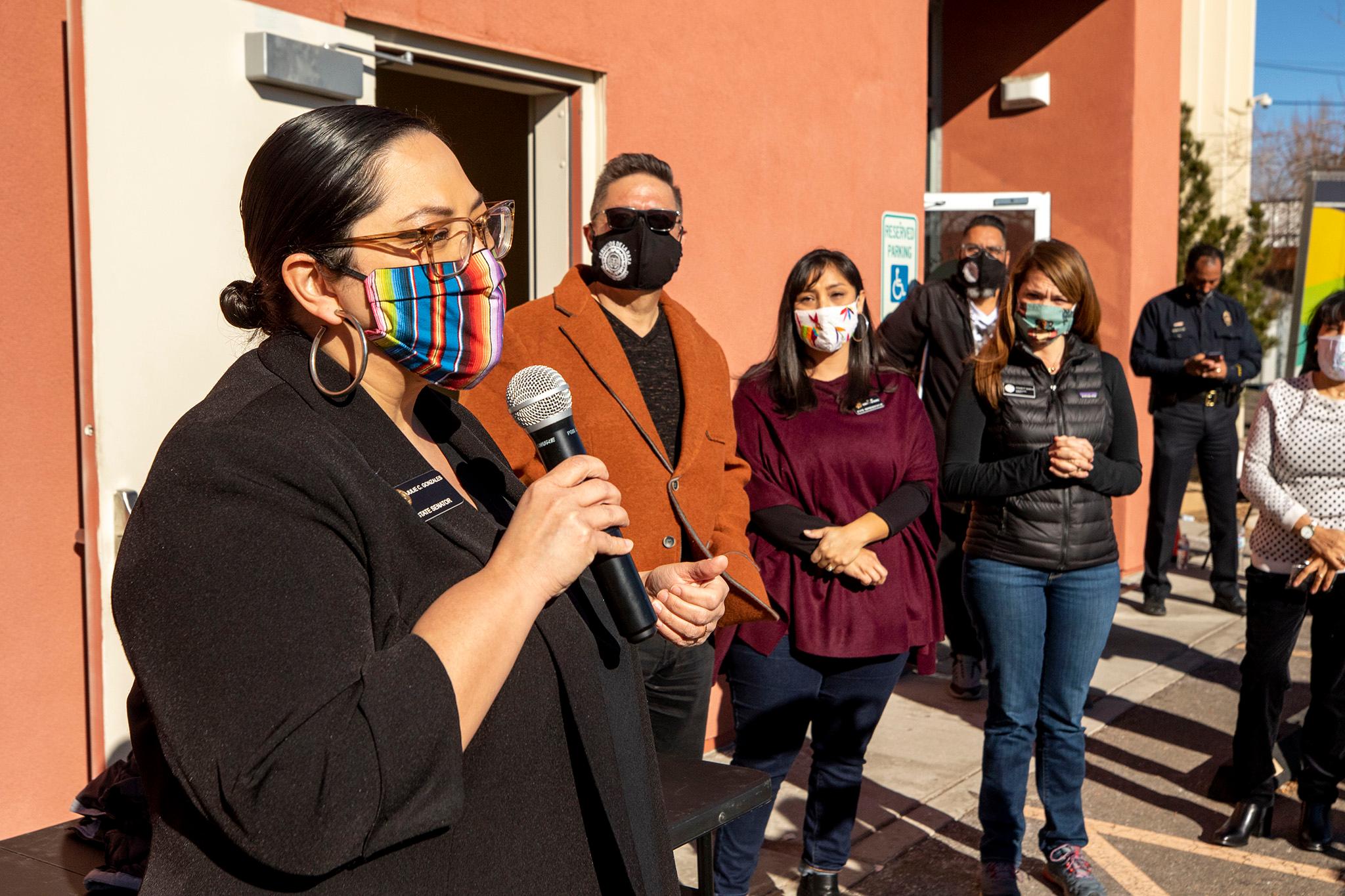
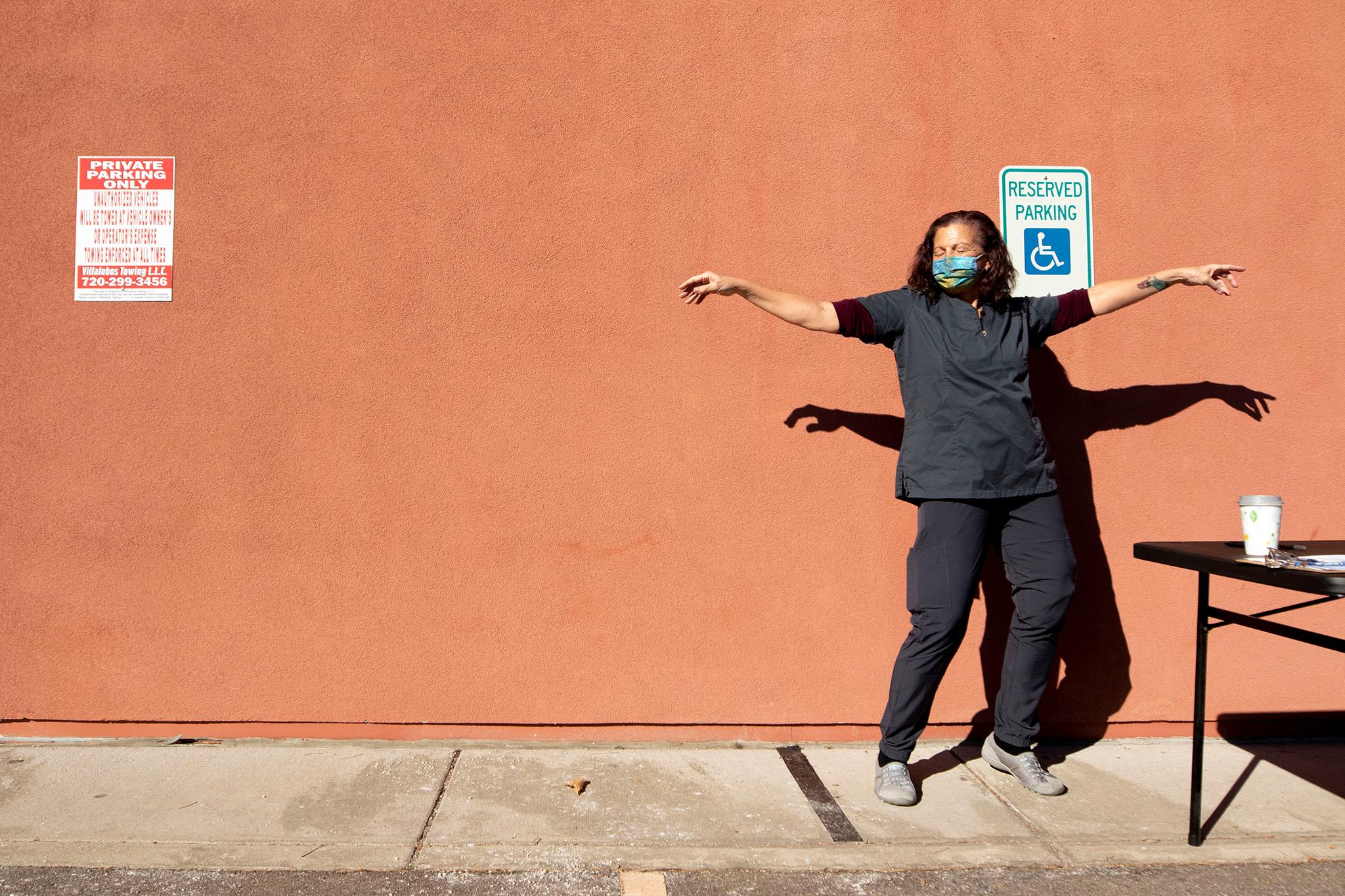
Gonzales-Gutierrez said there wasn't much of a playbook for setting up a community vaccination site when they started. They were "kind of building the plane in the air." But now that they have an effective site under their belts, she and Sen. Gonzales plan to scale up their efforts across the state.
"We're taking what we've learned here, and we're hoping to apply it moving forward in other communities," she said.
They've been working with members of Polis' vaccine team to identify Census tracts where pop-up clinics will be most impactful. As they plan to expand their outreach outside of Denver, they'll continue to bring shots to people in the city. On Sunday, they began registering members of St. Cajetan's Church for a drive-through clinic there next weekend.
"We can't just sit here and wait anymore," Gonzales-Gutierrez said. "We need to make this happen."

